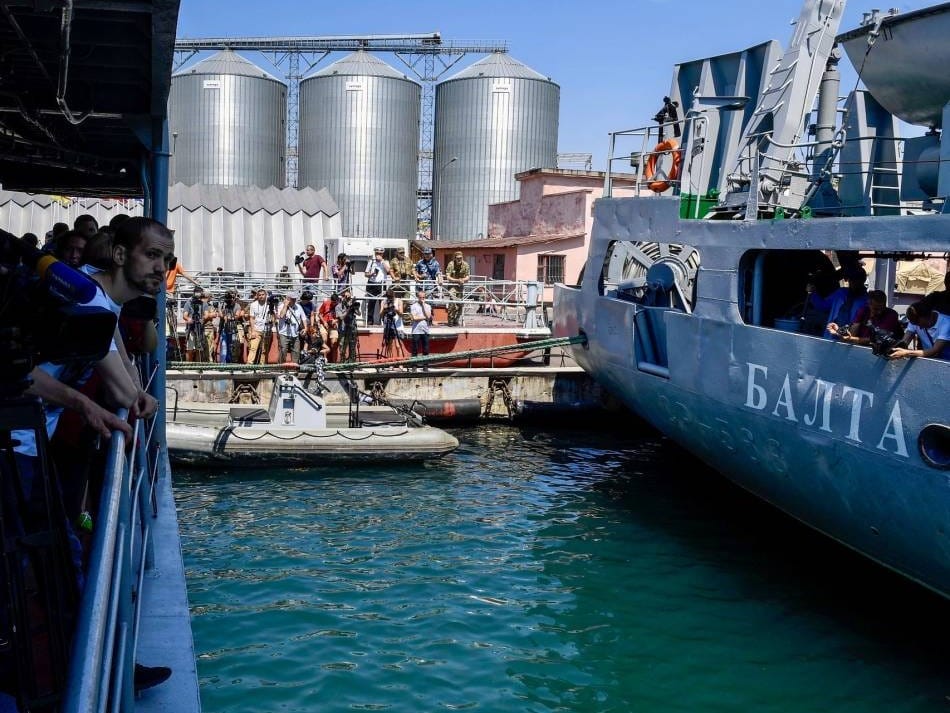Russian ships struck Ukraine's port of Odesa with cruise missiles on Saturday, violating the deal brokered by Turkey and the United Nations that Moscow and Kyiv signed less than a day earlier so the port could operate freely to help ease the global food crisis.
Two Russian cruise missiles hit the port’s infrastructure, including a grain silo, but Ukraine's air defenses stopped two other missiles, according to Ukraine's military command. Some people were injured in the attack, but Odesa's regional governor, Maksym Marchenko, did not specify how many.








